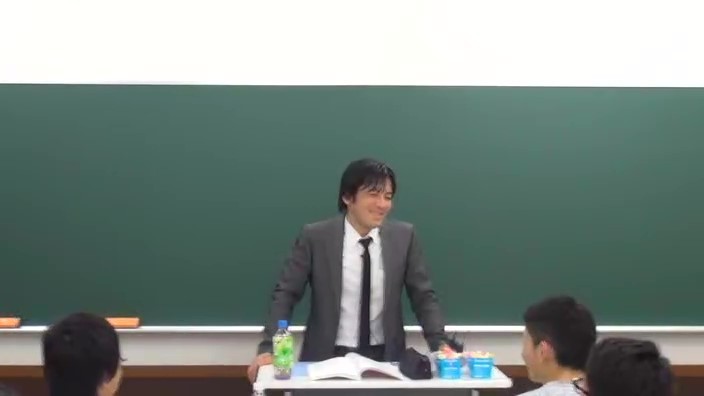英語の諺が【how】名言が【wh-】で成る理由
本記事は独学・国内学習による
英検1級保持者が書きました。
文語、口語の両方から使用頻度が高い表現を厳選しています。
問題難易度の目安としては、
GMARCH、英検2級、TOEIC500~600
等の対策として有効です。
ライティング・スピーキングを目的とした場合、
英検1級対策として極めて有効になります。
《 重要表現&句動詞 100人組手 ⑦ 》
061
Farmers are always ( ) the weather.
① at the mercy of
② merciful of
③ depended on
④ dependent in
▸ at the mercy of A「Aのなすがままに」
mercy は「慈悲,哀れみ,情け」(compassion) の意。
『自由な状態』
✰ at the mercy of A:Aのなすがままに
✰ at A’s will:Aの意のまま
✰ at A’s disposal:Aが自由にできる状態で
✰ at liberty:自由にできる状態で
正解 ①
「農夫は天候に左右される」
Farmers are always at the mercy of the weather.
Farmers are perpetually vulnerable to the unpredictability of weather conditions.
Farmers are forever reliant on the unpredictability of the weather.
Farmers are consistently dependent on the weather's mercy.
Farmers are eternally at the mercy of the weather's fluctuations.
Farmers are constantly subject to the whims of the weather.
062
She took her guests into the kitchen to ( ) off her new washing machine.
① show
② get
③ run
④ turn
▸ show off A「Aを見せびらかせる」
このoffは気持ちの〔解放〕
『Aを見せびらかせる』
✰ show off A
✰ make a display of A
✰ flaunt A
✰ exhibit A
✰ flaunting A
✰ displaying A
✰ showcasing A
✰ parading A
✰ demonstrating A
✰ boasting about A
✰ brandishing A
✰ revealing A
正解 ①
「彼女は新しい洗濯機を見せびらかすために,客をキッチンに連れて行った」
She took her guests into the kitchen to show off her new washing machine.
She ushered her guests into the kitchen to exhibit her new washing machine.
She guided her guests into the kitchen to display her new washing machine.
She led her guests into the kitchen to showcase her new washing machine.
She escorted her guests into the kitchen to demonstrate her new washing machine.
She directed her guests into the kitchen to present her new washing machine.
063
Yesterday I had an old friend of mine ( ) me in my absence.
① call on
② came to
③ called on
④ visited
▸ call on A「A(人)を訪問する」
「場所を訪問する」は
call at A
となるがいずれも visit で表現可能。
call:声を発する → 声を届かせる(電話・訪問する)
✰ call on A:A(人)を訪問する(=visit A)
✰ call at A:A(場所)を訪問する
✰ call on A for B:AにBを求める
✰ call for A:Aを要求する(=require, demand)
✰ call off A:Aを中止する(=cancel)
✰ call (up) A:Aに電話する(=telephone)
✰ call back A:Aに折り返し電話する
✰ call out:大声で言う,叫ぶ (=shout)
正解 ①
「昨日,私がいない間に,旧友が私を訪ねてきた」
Yesterday I had an old friend of mine call on me in my absence.
Yesterday, an old acquaintance visited me in my absence.
Yesterday, an old friend called on me while I was away.
Yesterday, an old buddy stopped by in my absence.
Yesterday, an old pal came to see me while I wasn't home.
Yesterday, an old comrade paid me a visit while I was out.
064
It’s a time you ( ) to work.
① started
② got down
③ stopped
④ left
▸ get down to A
「A(仕事などに)に取りかかる」
✰ start A
✰ go about A
✰ commence A
✰ initiate A
✰ embark on A
✰ undertake A
✰ dive into A
✰ tackle A
✰ commence with A
✰ launch into A
go, get は〔出発〕を表すことがある。
ex.) go for a walk
(散歩に出かける)
◆ get:手に入れる → ある状態にする → ある状態になる
✰ get on:
① (大型交通機関に)乗る
② 暮らしていく (=get along)
✰ get off:(交通機関などから)降りる
✰ get into:(小型交通機関に)乗り込む
✰ get out of:(小型交通機関から)降りる
✰ get to:Aに到着する (=arrive at, reach)
✰ get away:逃走する (=escape)
✰ get across:
①横断する
②(話など)分からせる (=get through)
✰ get ahead:成功する,出世する (=succeed)
✰ get over:
Aを克服する,打ち勝つ (=overcome)
✰ get through:
①通り抜ける
②(話など)を分からせる
③終える (=finish)
✰ get through with:
(仕事などを)終える (=finish)
✰ get up:
① 起きる (=rise)
② 立ち上がる
✰ get together:集まる (=assemble)
✰ get nowhere:らちがあかない,進歩がない
✰ get back at:
Aに仕返しをする
(=get even with, take revenge on)
✰ get down to:
(仕事などに)真剣にとりかかる
正解 ①
「そろそろ仕事に取りかかる頃だよ」
It’s a time you started to work.
It’s about time you commenced working.
It’s high time you initiated your work.
It’s past time you started working.
It’s time for you to begin your work.
It’s time for you to embark on your work.
065
Because his parents had died when he was young, his uncle brought him ( ).
① with
② about
③ in
④ up
▸『Aを育てる』
✰ bring up A
✰ bring A up
✰ rear A
『育つ』
✰ grow up
正解 ④
「若い時両親が死んだので,叔父さんが彼を育てた」
Because his parents had died when he was young, his uncle brought him up.
Due to the early demise of his parents, his uncle raised him.
Owing to the untimely death of his parents, his uncle took care of him.
Because his parents passed away prematurely, his uncle brought him up.
As a result of his parents' early passing, his uncle raised him.
With his parents passing away at a young age, his uncle took on the responsibility of raising him.
066
He is always punctual for appointments and never ( ) me for being even a minute late.
① allow
② lets
③ forgives
④ admit
▸〔理由〕の for なので
<forgive 人 for 事柄>
の語順で用いる。
『BのことでAを許す』
✰ forgive A for B
✰ excuse A for B
✰ pardon A for B
✰ excuse A for B
✰ overlook A for B
✰ condone A for B
✰ absolve A for B
✰ overlook A on account of B
✰ grant forgiveness to A for B
✰ let A off for B
✰ disregard A in light of B
◆『理由』
✰ for fear of A:Aを恐れて
✰ for lack of A:Aがないために
✰ for want of A:Aがないために
正解 ③
「彼は常に約束の時間を堅く守るので,1分でも私が遅刻することを許さない」
He is always punctual for appointments and never forgives me for being even a minute late.
He always arrives punctually for appointments and never overlooks my tardiness, even by a minute.
He is consistently on time for appointments and never fails to notice my slight tardiness.
He is invariably punctual for appointments and never fails to acknowledge my slight lateness.
He consistently shows up on time for appointments and never overlooks my slight delay.
He unfailingly arrives promptly for appointments and never overlooks my slight tardiness.
He reliably shows up punctually for appointments and never overlooks my slight lateness.
067
Because of the recession, many small companies had to ( ) a large number of their workers.
① lay by
② lay down
③ lay off
④ lay over
▸ lay off A「Aを一時解雇する」(=lay A off)
ある‘活動・状態’から〔分離〕することから
〔中止・休止〕の意味に繋がる。
◆『中断』
✰ leave off A:Aをやめる(=stop A)
✰ break off A: Aを急にやめる
✰ lay off A:Aを一時解雇する
✰ take off A:
①Aを脱ぐ
②Aを休暇として取る
③離陸する
✰ call off A: Aを中止する
✰ put off A:Aを延期する
✰ turn off A:(電気・ガスなどを)消す
◆ lay:横たえるように置く → 築く
✰ lay out:Aを設計する
✰ lay down:(規則などを)定める
✰ lay off:一時解雇する
正解 ③
「不況のため多くの中小企業は多くの労働者を一時解雇しなければならなかった」
Because of the recession, many small companies had to lay off a large number of their workers.
As a consequence of the economic downturn, numerous small businesses had to dismiss a significant portion of their workforce.
Because of the economic recession, many small enterprises had to let go of a considerable number of their employees.
Due to the economic downturn, several small companies had to release a large portion of their staff.
Owing to the recession, numerous small firms had to downsize by laying off a significant number of their workers.
As a result of the economic downturn, many small businesses had to downsize, leading to the dismissal of a large portion of their employees.
Because of the economic recession, several small enterprises had to reduce their workforce by laying off a substantial number of employees.
068
If you get too excited in an argument, you're likely to ( ) the main point.
① keep up with
② lose sight of
③ pay attention to
④ think much of
▸ lose sight of A「Aを見失う」
✰ lose (visual) contact (with) A
✰ lose track of A
✰ lose sight of A's whereabouts
✰ become unable to see A
✰ fail to keep A in sight
✰ lose visual connection with A
✰ lose A from view
✰ no longer see A
✰ be unable to locate A visually
✰ lose sight of A's position
take care of に代表されるこの種の表現は,
受動態でも全体が1まとまりであることから,
1つの他動詞扱いであることが分かる。
よってこの場合の of は
目的語を導く用法であると考えれば良い。
✰ lose sight of A:
Aを見失う
✰ avail oneself of A:
Aを利用する(=make use of)
✰ take advantage of A:
Aを利用する
✰ take charge of A:
Aを引き受ける
✰ take notice of A:
Aに注意を払う(=notice A)
✰ make a fool of A:
Aを笑いものにする(=mock A)
✰ make fun of A:
Aを笑いものにする(=ridicule A)
✰ make sure of A:
Aを確かめる(=confirm A)
✰ make sense of A:
Aを理解する(=understand A)
✰ let go of A:
Aを放す(=let A go)
✰ take care of A:
Aの世話をする,引き受ける(=look after A)
✰ make use of A:
Aを利用する(=use A)
✰ catch sight of A:
Aを見つける(=see A, find A)
正解 ②
「議論で興奮しすぎると,要点を見失ってしまうでしょう」
If you get too excited in an argument, you’re likely to lose sight of the main point.
If you become too impassioned during an argument, you're likely to lose focus on the main issue.
If you become too emotional during an argument, you're likely to lose track of the main point.
If you get too worked up during an argument, you're likely to lose sight of the main issue.
If you get too agitated during an argument, you're likely to lose sight of the main point.
If you become too heated during an argument, you're likely to lose focus on the main issue.
If you get too emotional during an argument, you're likely to lose sight of the primary objective.
069
I cannot understand why they are such good friends: they have little ( ) common.
① on
② with
③ in
④ to
▸『Aを共有している』
✰ have A in common (with B)
✰ share A with B
✰ possess A jointly (with B)
✰ hold A together (with B)
✰ enjoy mutual possession of A (with B)
✰ participate in the ownership of A (with B)
✰ jointly own A (with B)
✰ divide A between B
✰ distribute A among B
✰ split A with B
正解 ③
「彼らがどうしてそんなに仲が良いか分からない。共通点はほとんどないのだから」
I cannot understand why they are such good friends: they have little in common.
I'm perplexed as to why they are such close friends despite having little in common.
I'm puzzled by their close friendship despite their lack of common interests.
I'm baffled by their strong bond despite their differences.
I'm confused about why they're such good friends given their lack of shared interests.
I'm bewildered by their close relationship despite their dissimilarities.
I'm puzzled as to why they're such good friends given their lack of similarities.
070
True happiness consists ( ) desiring little.
① on
② from
③ in
④ by
▸ consist in A「Aにある」(=lie in A)
consist of A「Aから成り立つ」
と区別すること。
◆《構成》の of
『Aで成り立つ』
✰ consist of A
✰ be composed of A
✰ be made up of A
✰ be comprised of A
✰ be constituted of A
✰ be formed of A
✰ be constructed of A
✰ be composed primarily of A
✰ be predominantly made of A
✰ be largely constituted by A
✰ be chiefly comprised of A
◆『材料』の of
✰ be made (up) of A:Aで構成される
✰ be composed of A: Aで構成される
✰ consist of A:Aで構成される
正解 ③
「真の幸福はほとんど何も望まないことにある」
True happiness consists in desiring little.
Genuine happiness stems from wanting very little.
True happiness arises from desiring very little.
Real happiness comes from having minimal desires.
Authentic happiness is found in desiring very little.
Genuine happiness is achieved by wanting very little.
True happiness is attained by desiring very little.
《音読基本英文》
「全ての子供は,その知的能力がどのようなものであれ,少なくとも1つの言語を身に付ける」
Every child, regardless of his intellectual capacity, can pick up at least one language.
No matter a child's intellectual capacity, they can learn at least one language.
Children of all intellectual capacities can acquire at least one language.
Intellectual capacity notwithstanding, every child can learn at least one language.
Regardless of a child's intellectual capacity, they can acquire at least one language.
Every child has the ability to learn at least one language, regardless of their intellectual capacity.
「私達はみな,トーマス・エジソンを偉大な発明家だと思っている」
We all regard Thomas Edison as a great inventor.
We all consider Thomas Edison a great inventor.
Thomas Edison is universally respected as a great inventor.
Thomas Edison is widely acknowledged as a great inventor by all of us.
We all hold Thomas Edison in high esteem as a great inventor.
Thomas Edison is unanimously regarded as a great inventor by us all.
「彼女にその悲しい知らせを伝えるのは私の責任だ」
It is up to me to tell her the sad news.
I am responsible for delivering the sad news to her.
The task of informing her about the sad news falls on me.
I have the duty to convey the sad news to her.
Telling her the sad news is my responsibility.
I bear the obligation of informing her about the sad news.
「幼い子供は,肉体的要求と初期の教育としつけについては,母親に全面的に依存している」
Young children are completely dependent on their mothers for their physical needs and for their early education and training.
Young children rely entirely on their mothers for their physical needs and early education and training.
For their physical needs and early education and training, young children are entirely dependent on their mothers.
Mothers are the sole providers for young children's physical needs and early education and training.
Young children's physical needs and early education and training are solely fulfilled by their mothers.
The complete dependency of young children for their physical needs and early education and training lies with their mothers.
「その問題は解決したのも同然だ」
The problem is as good as settled.
The problem is virtually resolved.
The problem is practically solved.
The problem is effectively settled.
The problem is essentially resolved.
The problem is nearly settled.
「ともかく私は君がロンドンに居住し続けてくれることを希望します」
I hope, at any rate, that you are going to keep up your residence in London.
Regardless, I hope you'll maintain your residence in London.
In any case, I hope you'll continue living in London.
I hope, at least, that you'll uphold your residence in London.
Regardless of anything else, I hope you'll maintain your residence in London.
In any event, I hope you'll continue residing in London.
「私は息子に面倒を見てもらっている」
I am looked after by my son.
My son takes care of me.
I am cared for by my son.
My son looks after me.
I am under the care of my son.
My son is responsible for my care.
「金持ちはあまりお金を持っていない他人を軽蔑することが時としてある」
Sometimes rich people look down on other people who do not have much money.
Occasionally, wealthy individuals scorn those with less money.
Sometimes rich individuals disdain those lacking wealth.
Wealthy people sometimes hold a negative opinion of those with limited financial means.
Occasionally, affluent individuals look down upon those who are less financially fortunate.
Sometimes rich people have a contemptuous attitude towards those who are not wealthy.
「来年ジョンは応用物理学を専攻するだろう」
John will specialize in Applied Physics next year.
John's area of focus next year will be Applied Physics.
Applied Physics will be John's specialization next year.
John's field of study next year will be Applied Physics.
Next year, John will concentrate on Applied Physics.
John's academic focus next year will be in Applied Physics.
「私達は山のふもとの宿屋に泊まった」
We put up at an inn at the foot of the mountain.
We stayed at an inn located at the base of the mountain.
We lodged at an inn situated at the foot of the mountain.
We accommodated ourselves at an inn positioned at the foot of the mountain.
We spent the night at an inn found at the base of the mountain.
We stayed overnight at an inn situated at the foot of the mountain.
要点整理〔前置詞〕
for
This train is bound for Osaka.
This building is designed for people in wheelchairs.
Are you for or against my plan?
We worked for our living.
You can buy the paperback for about five dollars.
She looks young for her age.
London is famous for its fog.
She stayed there for three days.
この列車は大阪行きです。(方向・目的地)
この建物は車椅子の人々のために作られています。(追求・目的)
あなたは私の計画に賛成ですか、それとも反対ですか。(賛成)
私たちは私たちの生活のために働いた。(追求・目的)
あなたは約5ドルでそのペーパーバックを買うことができます。(等価・交換)
彼女は年のわりに若く見える。(観点)
ロンドンは霧で有名です。(理由)
彼女は3日間そこに滞在していた。(不特定期間)
from
1. I come from Canada.
2. Plastic is made from petroleum.
3. He is quite different from what he looks.
私はカナダ出身です。(出身)
プラスチックは石油から作られます。(原料)
彼はまったく見かけとは違います。(区別)
of
Our city is 30 kilometers north of Tokyo.
They were deprived of their political rights.
This house is made of wood.
While sleeping, he died of heart attack.
This book is of great use to those who want to know a lot about Japan.
Do you believe in the existence of God?
We were all impressed by her love of her children.
There is no hope ofus winning this game.
私たちの町は東京の北30 kmにあります。(分離)
彼らは政治的権利を奪われた。(分離→除去)
この家は木造です。(材料)
睡眠中、彼は心臓発作で死亡した。(原因)
日本について多くを知りたいという人にとって、この本は大いに役立ちます。(of+抽象名詞)
あなたは神の存在を信じますか。(主格)
彼女の子供へに対する愛情に私たちはみな感動した。(目的格)
私たちがこの試合に勝つという望みは無い。(同格)
to
He drove me to the station.
I usually go to and from the office by bus.
This is the key to Room 202.
They were moved to tears.
To our joy, our son returned safe.
I was caught in a shower and wet to the skin.
彼は私を駅まで車で送ってくれた。(方向・到達)
私はたいていバスで仕事場へ行き来する。(方向・到達)
これは202号室の鍵です。(一致)
彼らは感動して涙を流した。(結果)
喜ばしいことに、私たちの息子は無事に帰ってきた。(to one’s+感情を表す名詞)
私はにわか雨に会い、ずぶぬれになった。(程度)
with
He brought an umbrella with him.
She cut meat with a knife.
The leaves turned yellow with the coming of autumn.
He sat there with his legs crossed.
I have nothing to do with the matter.
The poor child was shivering with cold.
彼は傘を持っていた。(所有)
彼女はナイフで肉を切った。(道具)
秋の到来とともに、木々の葉っぱが黄色くなった。(同時)
彼は脚を組んでそこにすわっていた。(付帯状況)
私はその件とは関係がありません。(関連)
その哀れな子供は寒さで震えていた。(原因)
under
My brother is lying under the table.
Our school building is under construction.
You are under arrest.
1. 弟はテーブルの下に横たわっています。(離れた下)
2. 私たちの校舎は建築中です。(行為の過程)
3. あなたを逮捕します。(支配)
over
The plane flew over the island.
We had a chat over a cup of coffee.
1. その飛行機はその島の上空を飛んだ。(離れた上)
2. 私たちはコーヒーを飲みながらおしゃべりをした。(従事)
below
There is a waterfall below this bridge.
The sun sank below the horizon.
1 この橋の下流に滝がある。(地理的な下)
2 太陽は地平線の下に沈んだ。(基準線より下)
above
The top of Mt. Fuji was seen above the clouds.
Jack lives in the room above us.
She is above telling a lie.
1. 富士山の頂上は雲の上に見えた。(離れた上)
2 ジャックは私たちの上の部屋に住んでいます。(離れた上)
3 彼女は決して嘘をつない。(超越)
through
This train will go through a long tunnel.
Those stores are open through the night.
I don't really think I'll get through the exam this summer.
He failed the business through laziness.
1 この列車は長いトンネルを通るでしょう。(貫通)
2 あれらの店は夜通し開いています。(全過程)
3 あれらの店は夜通し開いています。(全過程)
4 彼は怠慢さのためにその仕事に失敗した。(理由)
beyond
My house is just beyond that river.
His idea is beyond my comprehension.
This job is beyond me.
1 私の家はちょうどあの川を越えたところにある。(位置)
2 彼の考えは私の理解を超えている。(範囲外)
3 この仕事は私にはできない。(範囲外)
along
Go straight along this street.
Let’s proceed along the lines I suggested.
1 この通りに沿ってまっすぐ行きなさい。(空間的)
2 私が示した方針に従って進みましょう。(比喩的)
across
We saw a dog swim across the river.
My house is just across the street.
1 私たちは犬がその川を泳いで渡るのを見た。(平面的なものを横切って)
2 私の家はちょうどその通りの向かいがわにあります。(平面的なものの向こう)
among / between
This sport is popular among young people.
This train runs between Tokyo and Hakata.
1 このスポーツは若者たちに人気があります。(3者以上)
2 この列車は東京と博多の間を走ります。(2者間)
★本記事内容の加工、流用は禁じます
今後も英語学習に関わる情報、体験談を発信していきます。









